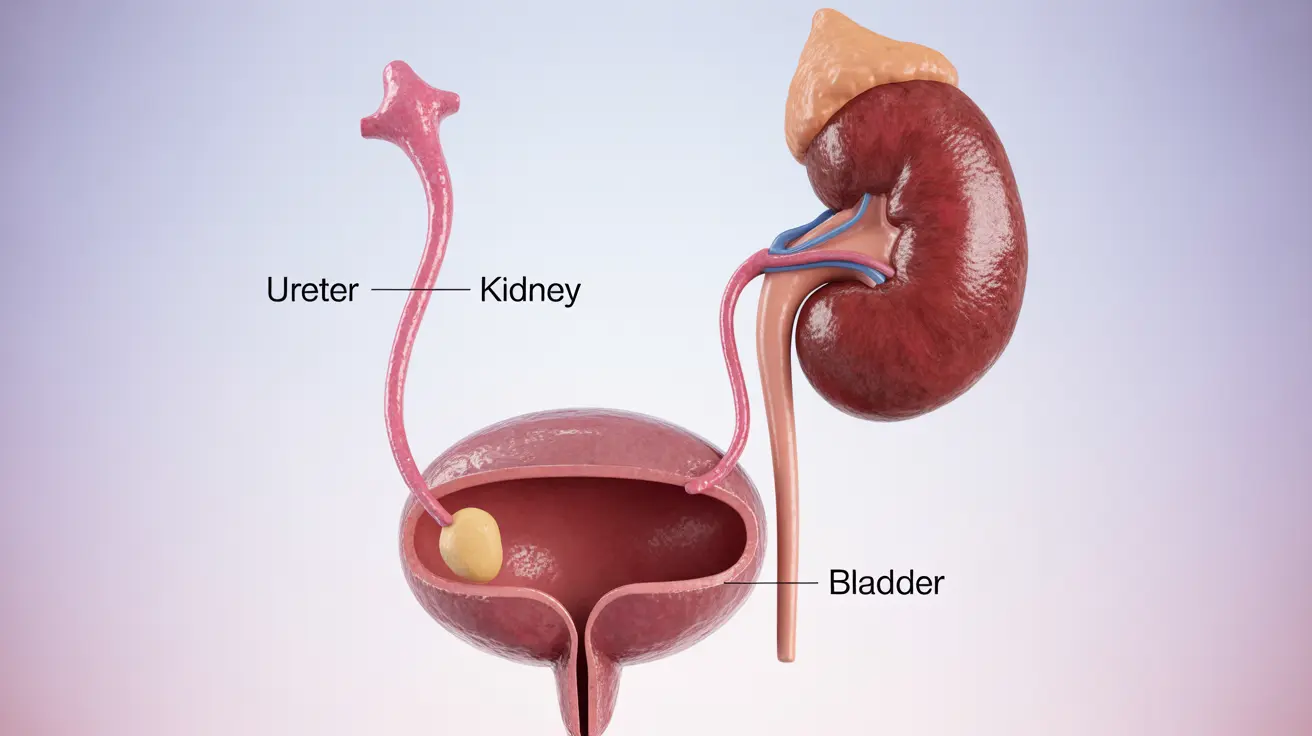Ureteral stones are mineral deposits that form in the ureter, the tube connecting your kidney to your bladder. These stones can cause significant discomfort and may require medical intervention if they don't pass naturally. Understanding the symptoms, diagnosis, and treatment options is crucial for anyone experiencing or at risk for ureteral stones.
While these stones can be painful and concerning, modern medicine offers various effective approaches for management and treatment. This comprehensive guide will help you understand what to expect and when to seek medical attention.
Understanding Ureteral Stones and Their Symptoms
Ureteral stones typically begin as kidney stones that move into the ureter. They can vary in size, composition, and the level of discomfort they cause. The most common types include calcium oxalate, calcium phosphate, and uric acid stones.
Common symptoms include:
- Severe pain in the side or back (renal colic)
- Pain that radiates to the lower abdomen and groin
- Blood in the urine (hematuria)
- Frequent urination or urgency
- Nausea and vomiting
- Fever and chills (if infection is present)
Diagnostic Procedures and Medical Assessment
When you visit a healthcare provider with symptoms of a ureteral stone, they will typically perform several diagnostic tests to confirm the presence, size, and location of the stone. This information is crucial for determining the most appropriate treatment approach.
Common Diagnostic Tests
Healthcare providers may use:
- CT scans (most common and accurate)
- Ultrasound imaging
- X-rays
- Urinalysis
- Blood tests to check kidney function
Treatment Options and Management
Treatment approaches vary depending on the stone's size, location, and severity of symptoms. Many smaller stones will pass naturally with proper hydration and pain management.
Conservative Management
For smaller stones, doctors often recommend:
- Increased fluid intake
- Over-the-counter pain medications
- Alpha-blockers to help relax the ureter
- Monitoring and waiting for natural passage
Medical Interventions
Larger stones may require more intensive treatments such as:
- Extracorporeal shock wave lithotripsy (ESWL)
- Ureteroscopy with laser lithotripsy
- Percutaneous nephrolithotomy for larger stones
Prevention Strategies and Dietary Modifications
Preventing future stones often involves lifestyle changes and dietary modifications. Your healthcare provider may recommend:
- Drinking plenty of water daily
- Reducing sodium intake
- Limiting animal protein consumption
- Avoiding foods high in oxalates (if you have calcium oxalate stones)
- Maintaining a healthy weight
Frequently Asked Questions
What are the common symptoms that indicate I might have a ureteral stone?
The most common symptoms include severe pain in the side or back, pain radiating to the lower abdomen and groin, blood in the urine, frequent urination, and nausea. Some people may also experience fever and chills if an infection is present.
How are ureteral stones diagnosed and what tests should I expect?
Diagnosis typically involves imaging tests such as CT scans, ultrasounds, or X-rays. Your doctor will also likely order urinalysis and blood tests to check kidney function and rule out other conditions.
What treatment options are available for passing or removing ureteral stones?
Treatment options range from conservative management (increased fluid intake and pain medication) for smaller stones to medical interventions like ESWL, ureteroscopy, or percutaneous nephrolithotomy for larger stones. The chosen treatment depends on stone size, location, and severity of symptoms.
Can dietary changes help prevent ureteral stones from forming or recurring?
Yes, dietary modifications can significantly help prevent stone formation. Key changes include increasing water intake, reducing sodium and animal protein consumption, and adjusting specific food choices based on your stone type (such as limiting oxalate-rich foods for calcium oxalate stones).
When is surgery necessary for ureteral stones, and what procedures are commonly used?
Surgery becomes necessary when stones are too large to pass naturally (usually >6mm), cause severe pain or complications, or block urine flow. Common surgical procedures include ureteroscopy with laser lithotripsy, ESWL, and percutaneous nephrolithotomy for very large stones.




